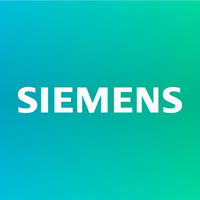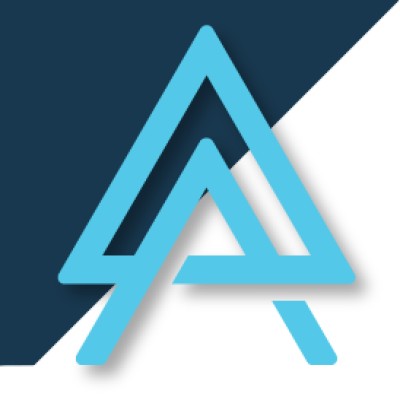German AI Startup Secures Funding for Industrial Inspection Revolution
July 16, 2025, 3:33 am
Munich's 36ZERO Vision secured €3.6M. Their AI system revolutionizes industrial quality inspection. It uses minimal data. It runs on simple hardware. The platform boasts high accuracy. It drastically cuts false positives. Top manufacturers already use it. This funding fuels European expansion. Global leadership in AI industrial inspection is the long-term goal.
Munich-based 36ZERO Vision received substantial funding. The German AI startup secured €3.6 million. This pre-Series A round fuels European expansion. Their visual quality inspection system grows its footprint. Investors included JOIN Capital, Bayern Kapital, and Vanagon Ventures. Additional support came from UnternehmerTUM and Alchemist. This capital boosts sales, customer success, and product development efforts.
Traditional industrial inspection often fails. Systems are complex. They demand extensive data. Thousands of images are often required. Manual labeling consumes vast resources. High rates of false positives plague operations. This leads to inefficiencies. Production lines face frustrating bottlenecks. Manufacturers seek superior solutions. Existing methods lack reliability on the shop floor.
36ZERO Vision offers a stark contrast. Their AI platform redefines quality control. It delivers superior accuracy. It drastically reduces pseudo-defects. This innovation cuts down false alarms. The system learns robustly. It requires very little data. As few as five annotated images suffice. This directly opposes industry norms. Competitors need vast datasets.
The company's technology is data-efficient. It simulates hundreds of thousands of synthetic variations. This effectively trains AI models. One benchmark proved remarkable. Ten images yielded near-perfect accuracy. No defects were missed. Zero false alarms registered. This performance surpasses state-of-the-art competitors. Their error rates often climb higher.
36ZERO Vision employs a modular deep learning model. Its multi-stage architecture excels. Each stage acts as an "expert." Specific inspection tasks benefit. This design ensures high precision. The system is software-first. It operates hardware-agnostic. Deployment is simplified. Low-end devices support it. iPhones or NVIDIA Jetson units suffice.
Integration is straightforward. The platform supports common industry protocols. GenICam connectivity broadens compatibility. This connects to various industrial cameras. Users access a cloud-based platform. Labeling, training, and validation occur there. Self-serve onboarding is standard. No on-site integration is necessary. Hardware retrofitting is avoided. This streamlines adoption significantly.
The impact on manufacturers is profound. Major industrial players already deploy the system. Siemens, Bosch Rexroth, and LEONI integrate it. These companies experience enhanced production quality. The technology improves efficiency. It lowers operational costs. Some deployments achieve rapid ROI. Returns on investment can be seen in months. This makes it a compelling choice for industry.
Founders lead this innovation. Heiko Huber serves as CEO. Zeeshan Karamat holds the CTO role. Karamat developed the core technology. It originated from a BMW Group hackathon. His aim was industrial-grade accuracy. This was achieved on minimal hardware. Huber brings extensive entrepreneurial experience. He previously co-founded a successful fitness tech company. Their combined expertise propels the vision forward.
The startup began in the automotive sector. It now serves diverse industries. Electronics, machinery, and building materials benefit. Interest grows from the defense sector. Their high quality demands align perfectly. Future expansion targets semiconductors. Wafer and chip inspection are planned. This will occur within a few years.
European expansion is a primary focus. The new funding fuels this growth. The company aims to deepen deployments. It seeks to scale across the continent. Southern Germany provides an ideal ecosystem. It offers world-class talent. Key industrial customers are abundant. This region fosters technological adoption.
The long-term ambition is global. 36ZERO Vision seeks to define a new standard. This standard will be for software-first industrial AI. Their solution offers real-world efficiency. It reliably delivers results on the shop floor. AI alone is not enough. Practical, robust implementation is vital. This vision positions them for lasting impact. The future of smart manufacturing depends on such advancements.
Munich-based 36ZERO Vision received substantial funding. The German AI startup secured €3.6 million. This pre-Series A round fuels European expansion. Their visual quality inspection system grows its footprint. Investors included JOIN Capital, Bayern Kapital, and Vanagon Ventures. Additional support came from UnternehmerTUM and Alchemist. This capital boosts sales, customer success, and product development efforts.
Traditional industrial inspection often fails. Systems are complex. They demand extensive data. Thousands of images are often required. Manual labeling consumes vast resources. High rates of false positives plague operations. This leads to inefficiencies. Production lines face frustrating bottlenecks. Manufacturers seek superior solutions. Existing methods lack reliability on the shop floor.
36ZERO Vision offers a stark contrast. Their AI platform redefines quality control. It delivers superior accuracy. It drastically reduces pseudo-defects. This innovation cuts down false alarms. The system learns robustly. It requires very little data. As few as five annotated images suffice. This directly opposes industry norms. Competitors need vast datasets.
The company's technology is data-efficient. It simulates hundreds of thousands of synthetic variations. This effectively trains AI models. One benchmark proved remarkable. Ten images yielded near-perfect accuracy. No defects were missed. Zero false alarms registered. This performance surpasses state-of-the-art competitors. Their error rates often climb higher.
36ZERO Vision employs a modular deep learning model. Its multi-stage architecture excels. Each stage acts as an "expert." Specific inspection tasks benefit. This design ensures high precision. The system is software-first. It operates hardware-agnostic. Deployment is simplified. Low-end devices support it. iPhones or NVIDIA Jetson units suffice.
Integration is straightforward. The platform supports common industry protocols. GenICam connectivity broadens compatibility. This connects to various industrial cameras. Users access a cloud-based platform. Labeling, training, and validation occur there. Self-serve onboarding is standard. No on-site integration is necessary. Hardware retrofitting is avoided. This streamlines adoption significantly.
The impact on manufacturers is profound. Major industrial players already deploy the system. Siemens, Bosch Rexroth, and LEONI integrate it. These companies experience enhanced production quality. The technology improves efficiency. It lowers operational costs. Some deployments achieve rapid ROI. Returns on investment can be seen in months. This makes it a compelling choice for industry.
Founders lead this innovation. Heiko Huber serves as CEO. Zeeshan Karamat holds the CTO role. Karamat developed the core technology. It originated from a BMW Group hackathon. His aim was industrial-grade accuracy. This was achieved on minimal hardware. Huber brings extensive entrepreneurial experience. He previously co-founded a successful fitness tech company. Their combined expertise propels the vision forward.
The startup began in the automotive sector. It now serves diverse industries. Electronics, machinery, and building materials benefit. Interest grows from the defense sector. Their high quality demands align perfectly. Future expansion targets semiconductors. Wafer and chip inspection are planned. This will occur within a few years.
European expansion is a primary focus. The new funding fuels this growth. The company aims to deepen deployments. It seeks to scale across the continent. Southern Germany provides an ideal ecosystem. It offers world-class talent. Key industrial customers are abundant. This region fosters technological adoption.
The long-term ambition is global. 36ZERO Vision seeks to define a new standard. This standard will be for software-first industrial AI. Their solution offers real-world efficiency. It reliably delivers results on the shop floor. AI alone is not enough. Practical, robust implementation is vital. This vision positions them for lasting impact. The future of smart manufacturing depends on such advancements.



